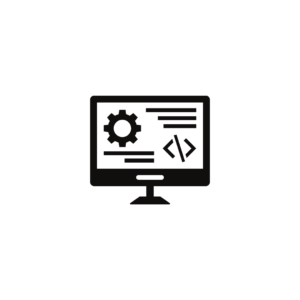Description
Overview of Diploma in Vocation (D.Voc) in Aviation
The Diploma in Vocation (D.Voc) in Aviation is designed to provide students with the essential knowledge and skills required for a successful career in the aviation industry. This program covers various aspects of aviation, including airline operations, airport management, air cargo services, and safety regulations, preparing students for diverse roles in this dynamic field.
Core Areas of Study
Introduction to Aviation
Understanding the basics of the aviation industry, including its history, structure, and the different sectors involved (commercial, cargo, military).
Airline and Airport Management
Learning about the operational and managerial aspects of airlines and airports, including scheduling, ticketing, passenger services, and ground handling.
Aviation Safety and Security
Exploring the regulations and best practices related to aviation safety and security, including the roles of organizations like the International Civil Aviation Organization (ICAO) and Federal Aviation Administration (FAA).
Air Navigation and Flight Operations
Gaining insights into air navigation systems, flight planning, and the roles of air traffic control.
Aircraft Maintenance and Technical Knowledge
Introduction to aircraft types, maintenance procedures, and the importance of regular inspections to ensure safety and compliance.
Cabin Crew Management
Learning about the roles and responsibilities of cabin crew, passenger safety protocols, and in-flight service management.
Customer Service in Aviation
Developing skills in customer service management specific to the airline industry, focusing on passenger satisfaction and effective communication.
Aviation Legislation and Regulations
Understanding the legal aspects of aviation, including international treaties, air traffic laws, and the regulatory framework governing the industry.
Curriculum Structure
A typical D.Voc in Aviation program may include:
Core Courses: Comprehensive courses covering aviation operations, safety, management, and legislation.
Practical Training: Hands-on experience through simulations, workshops, and possible internships at airports or with airlines.
Field Visits: Opportunities to visit aviation facilities, including airports and airline operations centers, for real-world exposure.
Admission Requirements
Admission to the D.Voc in Aviation program generally requires:
A high school diploma (or equivalent).
Some institutions may have specific requirements related to physical fitness or medical standards, particularly for cabin crew roles.
Skills Developed in the D.Voc Program
Graduates of the Diploma in Vocation in Aviation will develop essential skills, including:
Operational Knowledge: Understanding the intricacies of airline and airport operations, including logistics and customer service.
Safety Awareness: Familiarity with safety protocols, emergency procedures, and regulatory compliance.
Technical Proficiency: Basic understanding of aircraft systems and maintenance procedures.
Communication Skills: Ability to communicate effectively with passengers, crew, and operational teams to ensure smooth operations.
Problem-Solving Skills: Competence in handling on-ground issues, customer complaints, and emergency situations.
Career Opportunities
Upon completion of the D.Voc in Aviation program, graduates can pursue various career paths, including:
Airport Operations Officer
Managing daily airport operations, including passenger services, security, and logistics.
Airline Customer Service Agent
Assisting passengers with ticketing, check-in, and addressing inquiries or issues related to travel.
Cabin Crew Member
Ensuring passenger safety and comfort during flights, providing in-flight services, and managing emergencies.
Ground Handling Staff
Overseeing activities related to aircraft arrival and departure, including baggage handling and airplane servicing.
Aviation Safety Officer
Monitoring and implementing safety protocols within aviation operations to comply with regulatory standards.
Conclusion
The Diploma in Vocation in Aviation provides students with a comprehensive understanding of the aviation industry, encompassing both operational and management aspects. With a focus on practical training and real-world applications, graduates are well-equipped to embark on rewarding careers in various sectors of aviation. If you have any further questions about the D.Voc program or related topics, feel free to ask!









